Pregnancy may be a fantastic experience full of various advantages, ranging from improved sex to more self-assurance in one’s physical appearance.
It may cause months of nausea and weariness for some women and a wide range of dermatological issues, including acne and hyperpigmentation, for others. Pregnant women should avoid skincare ingredients to avoid during pregnancy, but most can be fixed with over-the-counter alternatives.
Pregnant Women Should Avoid the Following Skincare Ingredients:
There is a shortage of data on the safety of certain items during pregnancy, so we won’t get into that just yet. Studies on pregnant women that might show certain ingredients are harmful are almost always frowned upon ethically.
A few common skincare ingredients have been linked to severe fetal effects in animal, anecdotal, or case-specific studies. That’s the premise on which we’ve based our suggestions. However, cosmetic products must be “safe” for their intended use and labeling, but they don’t need FDA approval to be sold on the market.
All of this raises serious concerns regarding the safety of cosmetics during pregnancy. As a result, most experts (and thus, we) prefer to be cautious.
Retinoids
Skin, immune, reproductive, and eye health benefit from adequate vitamin A intake. Your body converts retinol to vitamin A after ingested or absorbed through the skin. Retinoids, a kind of retinol, have become a holy grail in anti-aging skincare treatments since they may cure acne and diminish fine wrinkles.
A source that you can trust. Retinoids renew the skin by speeding up the exfoliation of skin cells at the surface and increasing the creation of collagen.
In skincare, prescription medications like Retin-A (tretinoin) and Accutane contain much higher doses of retinoids than over-the-counter products. Pregnant women have been associated with birth problems in large dosages of retinoids received via topical treatments. As a result, the use of any retinoids is contraindicated when pregnant. A source that you can trust.
Accutane and other prescription retinoids have been extensively reported.
Visit Us : Top 15 Effective Skin Care Tips For Teenagers
More than half of infants born with severe congenital malformations exhibit neurocognitive impairments due to exposure while in the womb.
As a result, women of reproductive age should not use Accutane:
Doing two methods of birth control
Get prenatal care and compliance monitoring regularly from their doctor.
1–2 months before attempting to conceive, discontinue the drug.
Use of a high concentration of salicylic acid
Salicylic acid, which has anti-inflammatory properties comparable to aspirin, is frequent in acne treatments. Pregnant women should avoid salicylic acid-rich treatments, like skin peels and oral medicines, according to a 2013 research. However, the American College of Obstetricians and Gynecologists has found lower-dose salicylic acid OTC medicines safe (ACOG).
Hydroquinone
Hydroxyquinone is a prescription medication used to treat melasma and chloasma, two skin conditions that might worsen during pregnancy. Hydroquinone has not been linked to any severe birth abnormalities or adverse effects.
It’s better to avoid hydroquinone during pregnancy since the body may absorb up to 35 percent more of it than other substances (25 to 35 percent, according to this study).
Phthalates
Endocrine-disrupting compounds, such as phthalates, may be found in personal care and cosmetic products. In animal studies, phthalate exposure has been related to substantial reproductive and hormonal abnormalities.
There are few human studies to back this up, but the FDA and professional medical groups like the American Academy of Pediatrics are increasingly looking at endocrine disruptorsTrusted Source for their possible involvement in harming genetic reproductive health. Diethyl phthalate is the most frequent phthalate found in cosmetic items, and it is the primary cause of phthalate exposure (DEP).
Formaldehyde
Because it’s a proven carcinogen and, according to the Centers for Disease Control and Prevention, may raise the risk of infertility and miscarriage, formaldehyde is no longer often used in cosmetic products as a preservative and disinfectant.
However, formaldehyde-releasing compounds in cosmetics have a similar potentially harmful effect. According to the Environmental Working Group, they include:
bronopol
the drug DMDM hydantoin
The Diazolidinyl urea
hydroxymethyl glycinate
imidazolidinyl urea is a chemical compound.
quaternium-15
5-bromo-5-nitro-1,3-dioxane
Inorganic sunscreens
The most common UV filter in sunscreens is oxybenzone, one of its variants. Oxybenzone is beneficial in protecting the skin, but its possibly harmful health and environmental implications are putting it into the spotlight. Pregnant women should avoid using oxybenzone since it is known to alter hormones and cause long-term harm to both mother and child.
Research conducted on animals in 2018 found that maternal glands and lactation were permanently altered when exposed to oxybenzone at human exposure levels.
It has been shown in other animal experiments that the chemical may cause irreversible prenatal harm, which may be connected to the development of brain diseases such as Alzheimer’s disease in adults.
BEFORE USING ANY BEAUTY PRODUCTS OR USING ANY SKINCARE INGREDIENTS WHILE PREGNANT, CONSULT YOUR DOCTOR FIRST.
Trying to parse the complicated labels on many of our products every day can be difficult. But keeping an eye out for these skincare ingredients to avoid during pregnancy and only using beauty products that are
specifically labelled as not containing them can help you ensure that you and your baby remain healthy. You should also consult with your doctor about any products you are thinking about taking while expecting a child.
What you put on your body is just as essential as what you put in it, and you may not even realise it. A growing body of research suggests that some ingredients in cosmetics, skincare, and personal care items may enter the bloodstream and damage an unborn child.
There are specific skincare ingredients that have been connected to probable hazards, but more study is required to identify whether or not they are detrimental during pregnancy, while those with known or suspected dangers should be avoided.
This substance may be avoided by some expecting women, while others may elect to use it after speaking with their doctor, especially if they have a severe skin issue or another medical condition that might benefit from taking the product.
As a rule of thumb, it’s usually a good idea to consult with your dermatologist before using any new skincare products.
Read More: Grab That Pregnancy Glow With These Tips








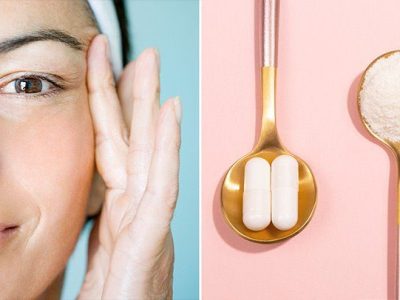
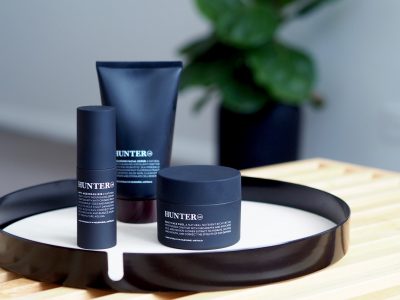
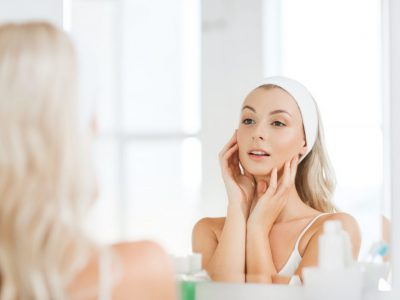



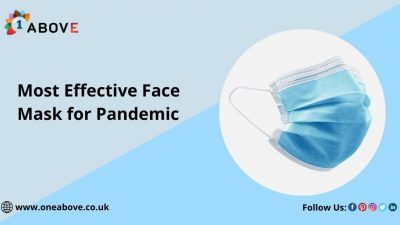




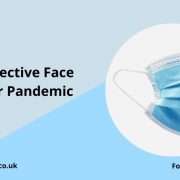



Comments